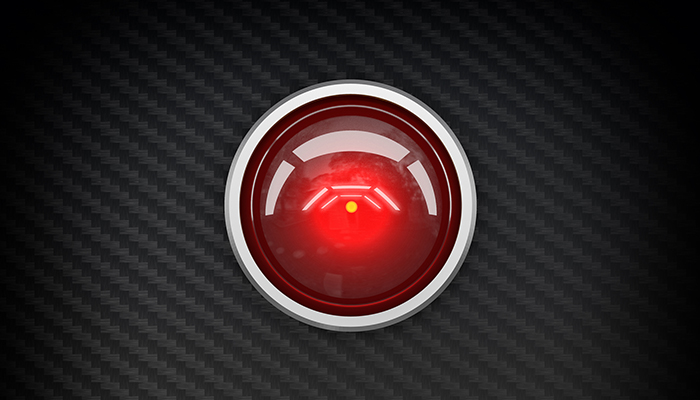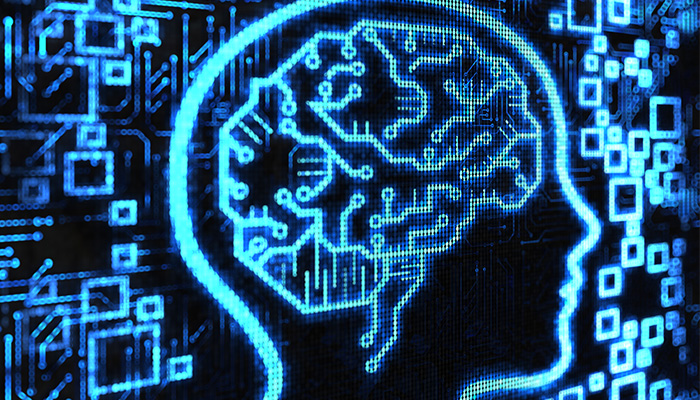Whether or not Hal will one day refuse to 'open the pod bay doors' IRL will depend on the research goals the field of artificial intelligence (AI) sets for itself.

Supercomputer: HAL 9000 is a fictional artificial intelligence character and the main antagonist in the Space Odyssey series.
Currently, the field is not prioritising the goal of developing a flexible, general purpose intelligent system like HAL. Instead, most efforts are focused on building specialised AI systems that perform well — often much better than humans — in highly restricted domains.
These are the AI systems that power Google’s search, Facebook’s news feed and Netflix’s recommendation engine; answer phones at call centres; translate natural languages from one to another; and even provide medical diagnoses. So the portrait of AI that Stanley Kubrick developed in his film 2001: A Space Odyssey, while appropriate for the time (after all, Kubrick’s film came out in 1968), appears pretty outdated in light of current developments.
That is not to say a superhuman general intelligence like HAL could not be built in principle, although what exactly it would take remains an open scientific question. But from a practical perspective, it seems highly unlikely that anything like HAL will be built in the near future either by academic researchers or industry.
The future of AI is probably more accurately depicted by a toaster that knows when you want to eat breakfast in the morning, than anything resembling a super intelligence like HAL.
Does this mean that artificial intelligence and other related fields like machine learning and computational neuroscience have nothing interesting to offer? Far from it. It’s just that the goals have changed.
Artificial intelligence these days is more closely connected to the rapidly growing fields of machine learning, neural networks, and computational neuroscience. Major tech companies like Google and Facebook, among many others, have been investing heavily in these areas in recent years and large in-house AI research groups are quickly becoming the norm. A perfect example of this is Google Brain.
So AI isn’t going anywhere, it’s just being transformed and incorporated into quite literally everything from internet search to self-driving cars to 'intelligent' appliances. The future of AI is probably more accurately depicted by a toaster that knows when you want to eat breakfast in the morning, than anything resembling a super intelligence like HAL.
The amazing power of the human brain
Virtually everything in the popular media today about AI concerns deep learning. These algorithms work by using statistics to find patterns in data, and they have revolutionised the field of AI in recent years. Despite their immense power and ability to match, and in many cases exceed, human performance on image categorisation and other tasks, there are some things at which humans still excel.
For instance, deep convolutional neural networks must be trained on massive amounts of data, far more than humans require to exhibit comparable performance. Moreover, network training must be “supervised” in the sense that when the network is learning, each output the network produces for a given input is compared against a stored version of the correct output. The difference between actual and ideal provides an error signal to improve network performance.

Incredible brainpower: AI software has been designed with cognitive abilities similar to those of the human brain, explain Crossley and Kaplan.
And yet humans can learn to do a remarkable variety of things like visually categorise objects and drive cars based on relatively small data sets without explicit supervision. By comparison, a deep neural network might require a training set of millions of images or tens of millions of driving trials, respectively.
The critical question is, how do we do this? Our brains are powerful neural networks shaped by millions of years of evolution to do unsupervised, or better, self-supervised, learning sometimes on the basis of limited data. This is where AI will be informed by ongoing work in the cognitive science and neuroscience of learning.
Cognitive science is at the heart at AI
Cognitive science is the study of how the brain gives rise to the many facets of the mind, including learning, memory, attention, decision making, skilled action, emotion, etc. Cognitive science is therefore inherently interdisciplinary. It draws from biology, neuroscience, philosophy, physics, psychology, among others.
In particular, cognitive science has a long and intimate relationship with computer science and artificial intelligence. The influence between these two fields is bidirectional. AI influences cognitive science by providing new analysis methods and computational frameworks with which neural and psychological phenomena can be crisply described.
Will artificial intelligence ever match or surpass human intelligence on every dimension? At the moment, all we can do is speculate, but a few things seem unambiguously true.
Cognitive science is at the heart of AI in the sense that the very concept of "intelligence" is fundamentally entangled with comparisons to human behaviour, but there are much more tangible instances of cognitive science influencing AI. For instance, the earliest artificial neural nets were created in an attempt to mimic the processing methods of the human brain.
More recent and further advanced artificial neural nets (e.g., deep neural nets) are sometimes deeply grounded in contemporary neuroscience. For instance, the architecture of artificial deep convolutional neural nets (the current state of the art in image classification) is heavily inspired by the architecture of the human visual system.
The spirit of appealing to how the brain does things to improve AI systems remains prevalent in the current AI research (e.g., complimentary learning systems, deep reinforcement learning, training protocols inspired by "memory replay" in the hippocampus), and it is common for modern AI research papers to include a section on biological plausibility – that is, how closely matched are the workings of the computational system to what is known about how the brain performs similar tasks.
- Can you create your own Game of Thrones-style language?
- Smartphones are making us stupid – and may be a 'gateway drug'
- Would you like fries with your lab-grown burger?
This all raises an interesting question about the frontiers of cognitive science and AI. The reciprocity between cognitive science and artificial intelligence can be seen even at the final frontier of each discipline. In particular, will cognitive science ever fully understand how the brain implements human cognition, and the corresponding general human intelligence?
And back to our original question about HAL: Will artificial intelligence ever match or surpass human intelligence on every dimension?
At the moment, all we can do is speculate, but a few things seem unambiguously true. The continued pursuit of how the brain implements the mind will yield ever richer computational principles that can inspire novel artificial intelligence approaches. Similarly, ongoing progress in AI will continue to inspire new frameworks for thinking about the wealth of data in cognitive science.
Dr Matthew Crossley is a researcher in the Department of Cognitive Science at Macquarie University working on category and motor learning. Dr David Kaplan is a researcher in the Department of Cognitive Science at Macquarie University working on motor learning and the foundations of cognitive science.
Understanding cognition, which includes processes such as attention, perception, memory, reading and language, is one of the greatest scientific challenges of our time. The new Bachelor of Brain and Cognitive Sciences degree – the only one of its kind in Australia – provides a strong foundation in the rapidly growing fields of cognitive science, neuroscience and computation.



